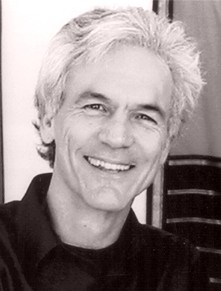Top 133 Minerals Quotes & Sayings - Page 3
Explore popular Minerals quotes.
Last updated on April 20, 2025.
To achieve true sustainability, we must reduce our "garbage index" - that which we permanently throw away into the environment that will not be naturally recycled for reuse - to near zero. Productive activities must be organized as closed systems. Minerals and other nonbiodegradable resources, once taken from the ground, must become a part of society's permanent capital stock and be recycled in perpetuity. Organic materials may be disposed into the natural ecosystems, but only in ways that assure that they are absorbed back into the natural production system.
There are three reasons, . . . apart from scientific considerations, mankind needs to travel in space. The first . . . is garbage disposal; we need to transfer industrial processes into space so that the earth may remain a green and pleasant place for our grandchildren to live in. The second . . . to escape material impoverishment: the resources of this planet are finite, and we shall not forego forever the abundance of solar energy and minerals and living space that are spread out all around us. The third . . . our spiritual need for an open frontier.
As mineralogy constitutes a part of chemistry, it is clear that this arrangement [of minerals] must derive its principles from chemistry. The most perfect mode of arrangement would certainly be to allow bodies to follow each other according to the order of their electro-chemical properties, from the most electro-negative, oxygen, to the most electro-positive, potassium; and to place every compound body according to its most electro-positive ingredient.
The phytochemicals, antioxidants, and fiber- all of the healthful components of plant foods- originate in plants, not animals. If they are present, it is because the animal ate plants. And why should we go through an animal to get the benefits of the plants themselves? To consume unnecessary, unseemly, and unhealthy substances, such as saturated fat, animal protein, lactose, and dietary cholesterol, is to negate the benefits of the fiber, phytonutrients, vitamins, minerals, and antioxidants that are prevalent and inherent in plants.
The export of oil, the export of minerals, will for many decades continue to be a critical part for the growth of African economies. The emphasis is on diversification. We have for many years - not just in South Africa but in many parts of the continent - spoken about beneficiation. And I think part of the secret, in relation to beneficiation, is you have got to make it attractive, profitable for the private sector - and it will take off. You may have to look at mechanisms like tax concessions... You will not have to worry about beneficiation if it makes commercial sense.
Yet soil is miraculous. It is where the dead are brought back to life. Here, in the thin earthy boundary between inanimate rock and the planet's green carpet, lifeless minerals are weathered from stones or decomposed from organic debris. Plants and microscopic animals eat these dead particles and recast them as living matter. In the soil, matter recrosses the boundary between living and dead; and, as we have seen, boundaries-edges-are where the most interesting and important events occur.
Leaves are usually looked upon as the children of the tree. Yes, they are children of the tree, born from the tree, but they are also mothers of the tree. The leaves combine raw sap, water, and minerals, with sunshine and gas, and convert it into a variegated sap that can nourish the tree. In this way, the leaves become the mother of the tree. We are all children of society, but we are also mothers. We have to nourish society. If we are uprooted from society, we can not trasform it into a more liveable place for us and our children.
Nature, at all events, humanly speaking, is manifestly very fond of color; for she has made nothing without it. Her skies are blue; her fields, green; her waters vary with her skies; her animals, vegetables, minerals, are all colored. She paints a great any of them in apparently superfluous hues, as if to show the dullest eye how she loves color.
There are over a million types of fish in the sea as there are flowers in all of the world's gardens. There are at least a million different types of rocks/minerals as there are species of birds or monkeys. To believe we are the only "intelligent beings" on this earth and beyond is ignorance. The possible configurations of lifeforms that could be created from a single atom are infinite. There are at least a billion people on this earth, and no two faces look the same. It is very arrogant to assume that we have seen all of God's miracles.
The creation story unfurling within the scientific enterprise provides the fundamental context, the fundamental arena of meaning, for all the peoples of the Earth. For the first time in human history, we can agree on the basic story of the galaxies, the stars, the planets, minerals, life forms, and human cultures. This story does not diminish the spiritual traditions of the classical or tribal periods of human history. Rather, the story provides the proper setting for the teachings of all traditions, showing the true magnitude of their central truths.
In my own field, x-ray crystallography, we used to work out the structure of minerals by various dodges which we never bothered to write down, we just used them. Then Linus Pauling came along to the laboratory, saw what we were doing and wrote out what we now call Pauling's Rules. We had all been using Pauling's Rules for about three or four years before Pauling told us what the rules were.
Life is also busy transporting and overturning the soils of earth, the stones, and the minerals. The miles-long drifts of sea kelp that float along our coasts may carry hundreds of tons of volcanic boulders held in their roots. I have followed these streams of life over 300 km, and seen them strand on granite beaches, throwing their boulders up on a 9,000 year old pile of basalt, all the hundreds of tons of which were carried there by kelp.
Moreover, they [the Central Asian Republics] are of importance from the standpoint of security and historical ambitions to at least three of their most immediate and more powerful neighbors, namely Russia, Turkey and Iran, with China also signaling an increasing political interest in the region. But the Eurasian Balkans are infinitely more important as a potential economic prize: an enormous concentration of natural gas and oil reserves is located in the region, in addition to important minerals, including gold.












